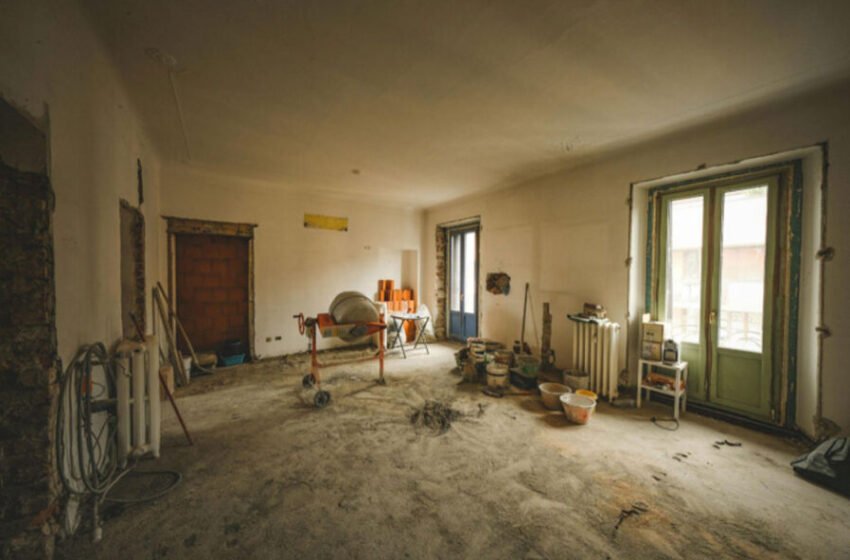What Homeowners Should Know Before Starting a Major Remodel

Starting a major home remodel can be exciting—it’s a chance to improve your space and make it truly your own. But it’s also a big step that can impact your time, budget, and daily life. That’s why it’s important to understand what the process involves before diving in.
In places like Texas, where property values are rising and many homes serve multiple generations, remodeling is more than just a trend. Homeowners are looking to create comfortable, functional spaces that also increase value. But without a solid plan, even the most exciting project can quickly become overwhelming.
This guide walks you through what every homeowner should know before starting a large renovation. With the right preparation, you can make smarter decisions, avoid costly missteps, and keep your project on track from start to finish.
Define Your Remodeling Goals Clearly
Remodeling is more than just improving how a home looks—it’s about adapting the space to better fit your lifestyle while increasing its long-term value. A growing family might need a second bathroom. Aging parents may require a first-floor bedroom. Outdated kitchens with poor lighting or cramped layouts can become open, efficient cooking areas that add comfort and appeal. Each of these upgrades does more than improve daily life—they can directly raise your home’s market value.
That increase in value builds equity—the difference between what your home is worth and what you still owe on it. Equity isn’t just theoretical. It’s a financial resource that can be used to fund further improvements. The more strategic your upgrades, the more value they can create—and the more equity becomes available.
For many in Texas, tapping into that equity is a practical way to finance renovations. That’s why homeowners often keep a close eye on home equity loan rates in Texas. With home prices rising in many parts of the state, leveraging that growth through a home equity loan can offer a stable, lower-interest funding option compared to personal loans or credit cards. Monitoring rates helps ensure the timing is right—and that the financial side of your remodel supports your broader goals, not just the project in front of you.
Set a Realistic Budget — and Pad It
Budgeting is one of the most important steps in the remodeling process. Without a solid budget, costs can spiral out of control. Start by outlining all expected expenses. These include labor, materials, permits, equipment rentals, and even small items like paint or hardware.
It’s also smart to plan for hidden costs. Structural issues, outdated wiring, or plumbing problems often show up once work begins. To avoid surprises, add a cushion of 10% to 20% on top of your estimated budget. This buffer helps you stay on track even if unexpected expenses arise.
Understand Permits and Regulations
Many remodeling projects require permits, especially if you’re making structural changes or altering plumbing and electrical systems. These permits are handled by your local building department and ensure the work meets safety codes.
Skipping permits might seem like a time-saver, but it can lead to fines, delays, and complications when selling the house. Some insurance companies may also deny claims if unpermitted work causes damage.
To avoid issues, check with your city or county office before starting. If you’re hiring a contractor, ask them to handle the permit process. Make sure it’s clearly stated in your contract who is responsible for obtaining them.
Vet and Hire the Right Professionals
Hiring experienced, reliable professionals can make a major difference in your remodeling experience. A licensed contractor will understand local codes, manage subcontractors, and keep the project on schedule.
Start by asking for recommendations or reading online reviews. Get multiple quotes and compare them carefully. Look at more than just price—consider experience, communication, and how well they understand your goals.
Always ask for proof of insurance and proper licenses. A good contractor should also provide a clear contract outlining the scope of work, timeline, payment schedule, and materials.
Prepare for Disruption
Major remodeling can disrupt your daily routine. It may affect where you eat, sleep, or even how you enter your home. Noise, dust, and limited access to certain rooms are common during construction.
Before the work begins, plan how you will manage these changes. If the kitchen will be out of use, think about setting up a temporary space for basic cooking. If bathrooms are being remodeled, figure out how your family will share the remaining ones.
Also, consider how the remodel may affect pets and children. You may need to block off unsafe areas or make short-term changes to your living arrangements. In some cases, it may become necessary to stay elsewhere for a short time, especially if water or electricity will be shut off.
Preparing ahead of time makes it easier to stay comfortable and safe during the process.
Prioritize Structural and Safety Upgrades First
If your home needs any major repairs, handle those first. Issues with the foundation, roof, plumbing, or electrical system should always be addressed before cosmetic changes.
For example, if you’re opening walls for a new layout, that’s the best time to inspect and update wiring or pipes. Fixing problems now can help prevent future damage and reduce long-term costs.
Also, consider energy-efficient updates, like better insulation or windows. These may not be visible once the project is done, but they can improve comfort and reduce utility bills over time.
Expect the Unexpected
Even with a strong plan, remodeling rarely goes exactly as expected. Delays, weather issues, and hidden problems are all common in construction.
Instead of aiming for perfection, stay flexible. If an item is out of stock or a surprise repair is needed, you may need to adjust the timeline or budget. This is where your planning and budget cushion can really help.
Keeping your goals in mind makes it easier to handle changes without getting too stressed. Focus on the bigger picture and remember that some changes may even improve the final result.
Being prepared for the unexpected makes the process easier to manage and helps keep your project on track.
Starting a major remodel is a big commitment. But with the right preparation, it can go more smoothly and bring lasting value to your home.
Set clear goals so you know what you’re working toward. Build a solid budget that includes extra for surprises. Learn about permits and find the right team for the job. Be ready for short-term disruption and make sure safety upgrades come first. Pick materials that suit your needs, and keep the lines of communication open.
Finally, stay flexible. Remodeling comes with challenges, but staying informed and prepared can help you handle them with confidence.





